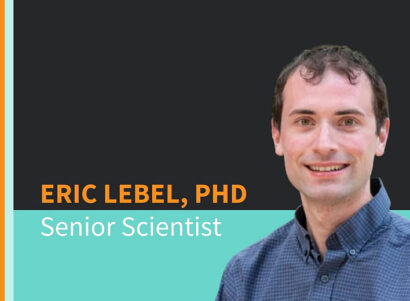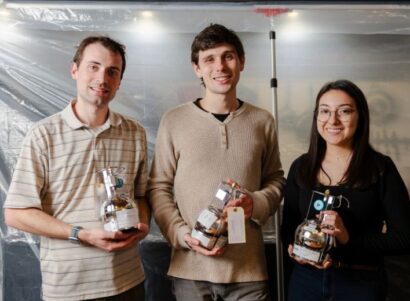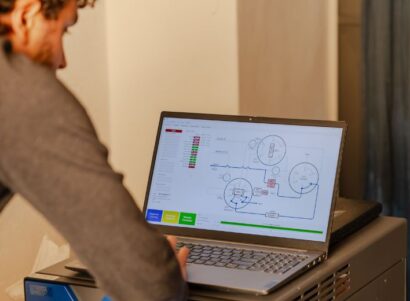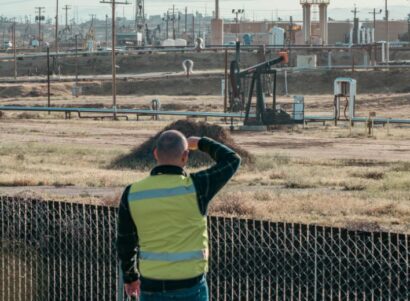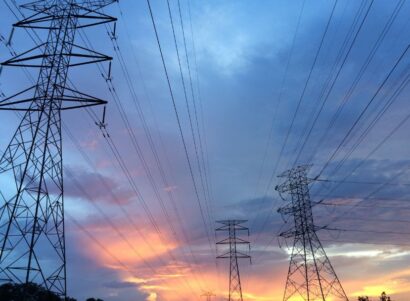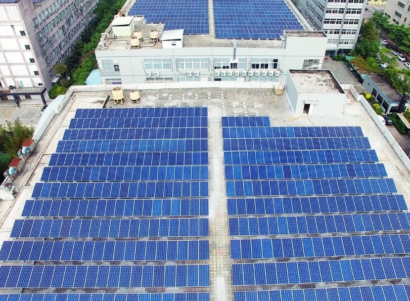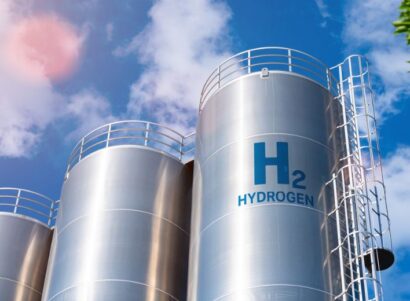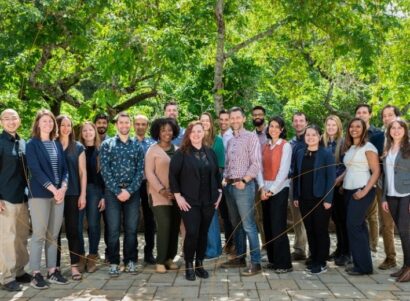Energy infrastructure in the United States is a leading source of both climate and health-damaging air pollutants, yet energy and climate policy often overlook the direct impacts to public health.
For National Public Health Week, Environmental Health Scientist Dr. Curtis Nordgaard shares his experience at the intersection of public health, climate change, and energy policy. Dr. Nordgaard is a practicing pediatrician at a community health center in the Dorchester neighborhood of Boston. He joined PSE in 2020 to research natural gas and its implications for human health.
As a pediatrician, what drew you to work in energy research?
I finished my training and became a practicing pediatrician in 2015. But even before that, I was learning about climate change and becoming increasingly concerned about the public health impacts of climate change. I reached a point where I felt a moral obligation to my pediatric patients and their future well-being to dedicate some part of my professional career to help stop climate change.
I started to look at local issues and at the time there were some significant natural gas infrastructure proposals in Massachusetts. The more I learned about the impacts of the energy system around me, the more engaged I became. I found that my medical expertise gave me a unique perspective: I was able to discuss what fossil fuel infrastructure might mean for affected communities from a health perspective.
But over time I also realized that there were a lot of questions I had about how our energy system impacts public health, and that these questions could only be answered by research. So that’s why I joined PSE—to help answer those questions.
What questions about public health and climate change are you hoping to answer?
When we say that climate change is a public health issue, we typically mean that as the climate warms, changes in our environment will directly impact public health through heat waves, wildfires, and other extreme weather. This is of course true and very important, but when it comes to fossil fuels, there’s a whole other side to the public health story. A significant body of evidence has demonstrated that living near oil and gas development has adverse public health impacts and that communities of color are disproportionately at risk. If we put the public health and climate impacts of fossil fuels into separate policy and research buckets, we risk missing areas where they overlap.
For this reason, my research at PSE Healthy Energy is currently focused on understanding whether health-damaging air pollutants are present in natural gas. In the last decade, a surge in research on natural gas has found that methane, a powerful greenhouse gas, is leaking from all parts of the vast natural gas supply chain. This research has provided a much clearer picture of natural gas’s role in climate change, but there has been less focus on some of the public health risks associated with using natural gas, particularly in homes.
Our hope is that a better understanding of any potential health risks associated with natural gas will support better-informed policy. At the end of the day, we need solutions that both lower our climate risk and make communities healthier.
What have your experiences working within public health at the community level taught you?
One lesson is that you never know everything that the community knows. A community with legacy pollution has their own understanding of the issues and their own vision for what they want for the future of their community. You really have to hear their stories and perspectives to understand what issues you need to focus on.
As a physician, I have also learned that there is a substantial gap between our understanding of health and what is actually impacting the health of our patients. Certain issues, such as lead poisoning, have received a lot of focus and training. But there is less attention on other environmental factors impacting children’s health, such as air pollution. Because of this, physicians have very little ability to understand how the energy systems in our area affect health outcomes.
How is climate change impacting public health in your community?
The impacts of climate change are being experienced both locally and globally. Here in Boston, we see significant sea level rise and more intense rainfall and some of my patients have to deal with flooding as a result. We are also seeing heat waves impacting our patients. I have had to write letters of support for families with infants living in stifling hot apartments to receive air conditioning services.
At the same time, we are seeing impacts that stretch across the county. In the last few years, wildfire smoke from California has reached Boston. One of my patients suffered an asthma attack and went to the hospital during one such event last summer, after having no problems with his asthma for some time. Wearing seatbelts and smoking are commonly discussed as public health issues, but climate change? Not so much.
What would it mean for climate policy to fully incorporate public health?
We need to acknowledge the overlap between health and climate, while recognizing that public health is really determined at the local level. Climate policies often focus on lowering greenhouse gas emissions, which is essential for minimizing the health risks posed by the impacts of climate change, but if we want to improve public health across the board we need to address pollution that happens locally.
For example, Massachusetts recently extended a state rebate for electric vehicles, while the regional transit authority continues to purchase diesel buses. Because wealthier households are more likely to own personal vehicles, the public health benefits from that rebate will likely accrue preferentially in wealthier suburbs outside of Boston, even though we all benefit from the reduction in greenhouse gas emissions. On the other hand, the emissions from diesel buses in Boston disproportionately affects air quality in lower income communities and communities of color. By thinking about climate from a public health lens, we have a greater ability to prioritize the solutions that create the most benefits and ensure that no communities are left behind.



